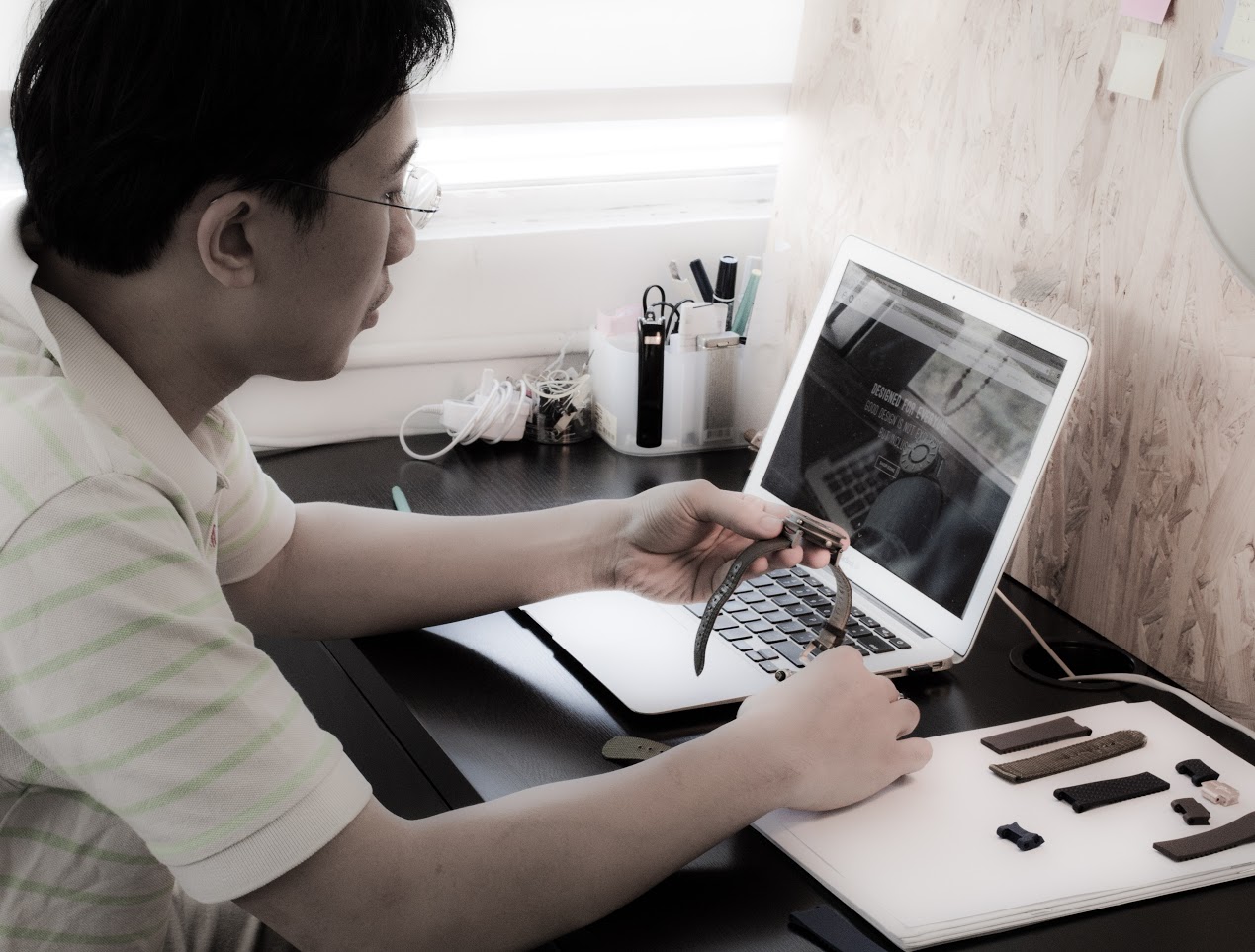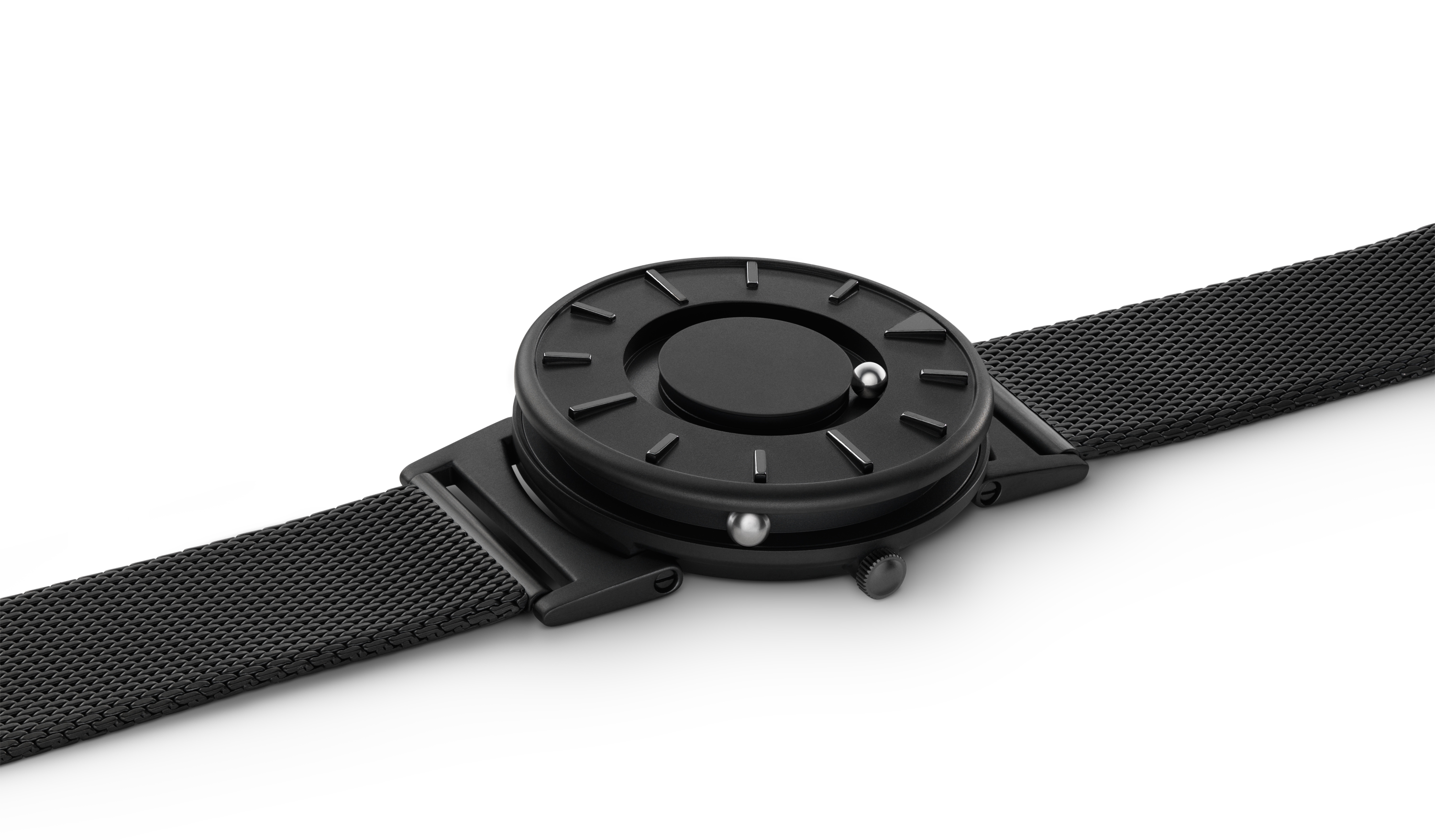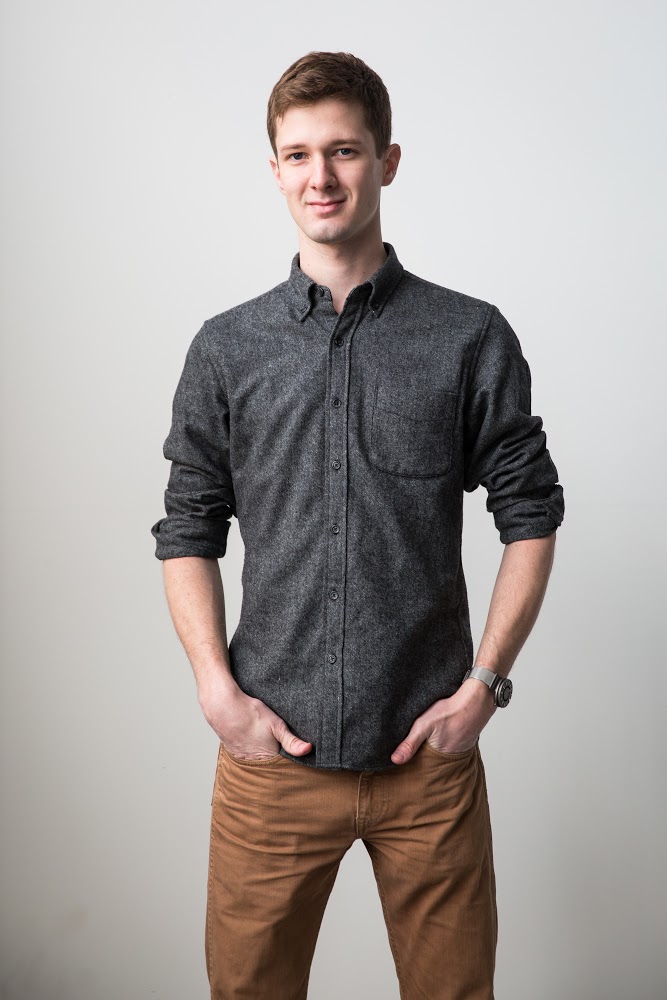Close your eyes. Now, tell me, what time is it? –a seemingly simple question yet virtually impossible to answer for someone who is blind.
A few weeks ago I was lucky enough to meet Tim Fleschner, the director of marketing & communications at Eone Time. He opened up by asking this question. Stumped by this question, the solution was to ask Siri the time or glance at my phone. Tim’s solution to this problem is The Bradley Timepiece. Inspired by this incredible product and the its great potential to change the way blind people tell time, I contacted Tim to ask further questions about his role with this product and how he became interested in entrepreneurship.
 In the photo: Brad Snyder wearing the Bradley Timepiece and holding his gold medal
In the photo: Brad Snyder wearing the Bradley Timepiece and holding his gold medal
Q. Please tell me a little bit about Eone.
A. The contemporary wristwatch is an amazing feat of engineering, yet it still relies exclusively on sight. The Bradley Timepiece was created to accommodate both sighted and visually impaired users equally. Designed in collaboration with the blind, The Bradley allows you to touch and see to check time. Built of solid titanium, time is indicated by two ball bearings: one indicating minutes (top), and one indicating hours (side). These two ball bearings are connected with magnets to a watch movement beneath the watch face. Even if the ball bearings are displaced when touched, the magnets will move the ball bearings back to the correct time with a gentle shake of the wrist.
The Bradley is named after former Navy Officer and Paralympic Gold Medalist, Brad Snyder, who lost his vision from an IED explosion in Afghanistan. Through his actions, Brad is breaking the stereotypes and misconceptions people have towards the blind. He has inspired us with his determination, his work ethic, and most importantly, his attitude.
Like Brad, we’ve thought outside the box to come up with an innovative solution to a big problem. With its beautiful form and exceptional function, our tactile timepiece serves to both sighted and visually impaired users equally. The Bradley is accessible to everyone, because telling time shouldn’t require sight.
Q. How did you first get involved with eone, what is your particular role?
A. My sister lost her vision during her first year at Harvard Law. One afternoon, my sister was walking in Harvard Square with her guide dog Zoe. Our current CEO, Hyungsoo Kim, introduced himself to my sister and told her about his initial idea for a tactile wristwatch. After hearing about her encounter, I reached out to Hyungsoo and offered my help as they began to test prototypes and launch a Kickstarter project. Last fall, I joined Eone full time to lead marketing efforts.
Q. What is your favorite part about working with eone?
A. My sister’s experience with blindness has motivated me to advocate for this community. My favorite part about working with Eone is that I am able to make a tangible impact through creating accessible products. I’m also excited about linking together seemingly disparate groups— the blind and the non-blind—by creating products with inclusive design. We believe expanding the practice of inclusive design principles in creating mainstream products is an effective solution for dissolving this unintended barrier. It will not only provide greater accessibility to people who are disabled, but will also invite them to become equal participants in society.
Q. What are the most important characteristics to have in order to be a successful entrepreneur?
 In the photo: An employee working on the design of The Bradley Timepiece
In the photo: An employee working on the design of The Bradley Timepiece
A. I think this partially depends on the stage of the startup, but more generally: tenacity, flexibility, and passion. During the initial stages of our startup, we spent several months designing the concept for a braille wristwatch. After meeting with blind focus groups, however, we learned that only 10% of the blind population can actually read braille. This required us to pivot our business model and create a completely new product. I think that tenacity, flexibility, and passion played a big role in enabling us to overcome this obstacle.
Q. Do you find that empathy is important in entrepreneurship? Do you think most entrepreneurs realize the importance of empathy? Was there a specific time that you found your empathy was most influential and impactful?
A. Regardless of industry, I think empathy is a necessary component to understanding your customers. When we first set out to create a universal timepiece, we focused entirely on functionality. It wasn’t until we spoke with people who were vision impaired — and learned to better put ourselves in their shoes — that we came to understand that they are just as concerned with design and fashion as they are with function. Empathy enabled us to build a better wristwatch that was better for everyone.
Eone Timepiece Instagram











